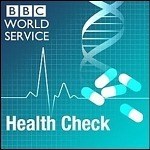Trafficked children in S.E. Asia
Trafficked children in Southeast Asia, Â In the largest study of its kind, researchers at the London School of Hygiene and Tropical Medicine have discovered high levels of post-traumatic stress disorder (PTSD), depression, self-harm and suicide attempts in trafficked children and adolescents rescued from sex work and forced labour in Southeast Asia.
Dr Ligia Kiss discusses the findings, how victims can be helped and how effective the services provided are in the home countries of Thailand, Cambodia, Myanmar and Vietnam.
Trafficked children in the Southeast Asia region
Trafficked children in regions such as Southeast Asia have long been a problem for the area and still is prevalent today.
It has been observed that as economies continue to grow, the demand for labour is at an all-time high in the industrial sector and the sex tourism sector.
A mix of impoverished individuals and the desire for more wealth creates an environment for human traffickers to benefit in the Southeast Asia region
Electrical prevention of motion sickness, Claudia visits the basement of Charing Cross Hospital where she takes a spin on a mechanical chair designed to make people seasick. She explores the experimental basis for a new kind of preventative treatment for motion sickness developed by researchers and doctors there.
Why do people get motion sick, what are the drawbacks of current treatments and how might weak electrical currents to the skin of the head be developed into a simple practical device to give people sea legs?
How do insecticide-treated bednets work?
Treated bed nets have prevented millions of cases of malaria in sub-Saharan Africa but how do they work?
Researchers from the Liverpool School of Tropical Medicine have used incredibly sensitive infrared cameras to watch and track individual mosquitoes as they fly around sleeping people under these nets, seeing exactly how mosquitoes interact with and are killed by the nets.
Dr Philip McCall argues that knowing the minutiae of mosquito behaviour at bednets is key as mosquitoes are becoming increasingly resistant to the insecticides widely used in nets today.
Presented by Claudia Hammond, Healthcheck is produced by the BBC in London and broadcast in Phuket every Sunday morning by Phuket Island Radio and online through its internet streaming services.
